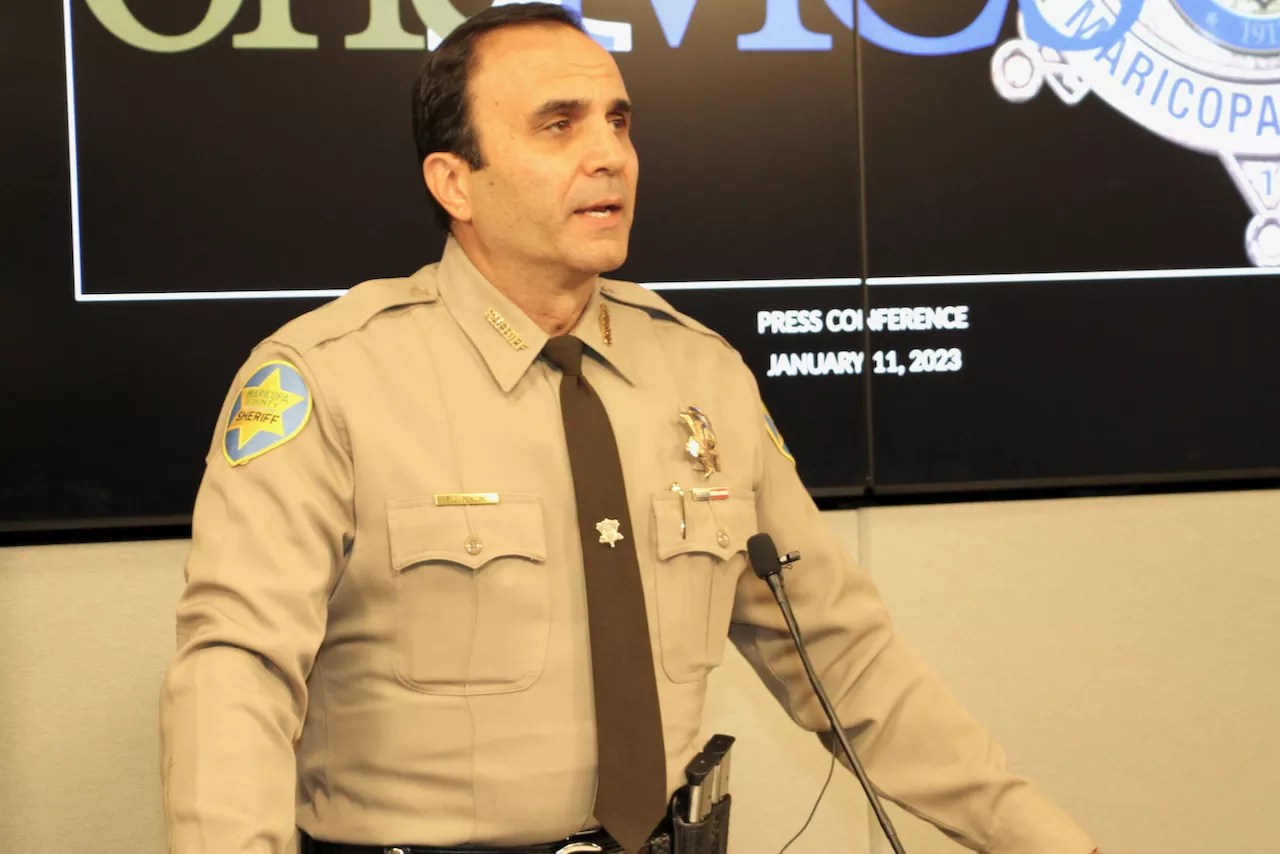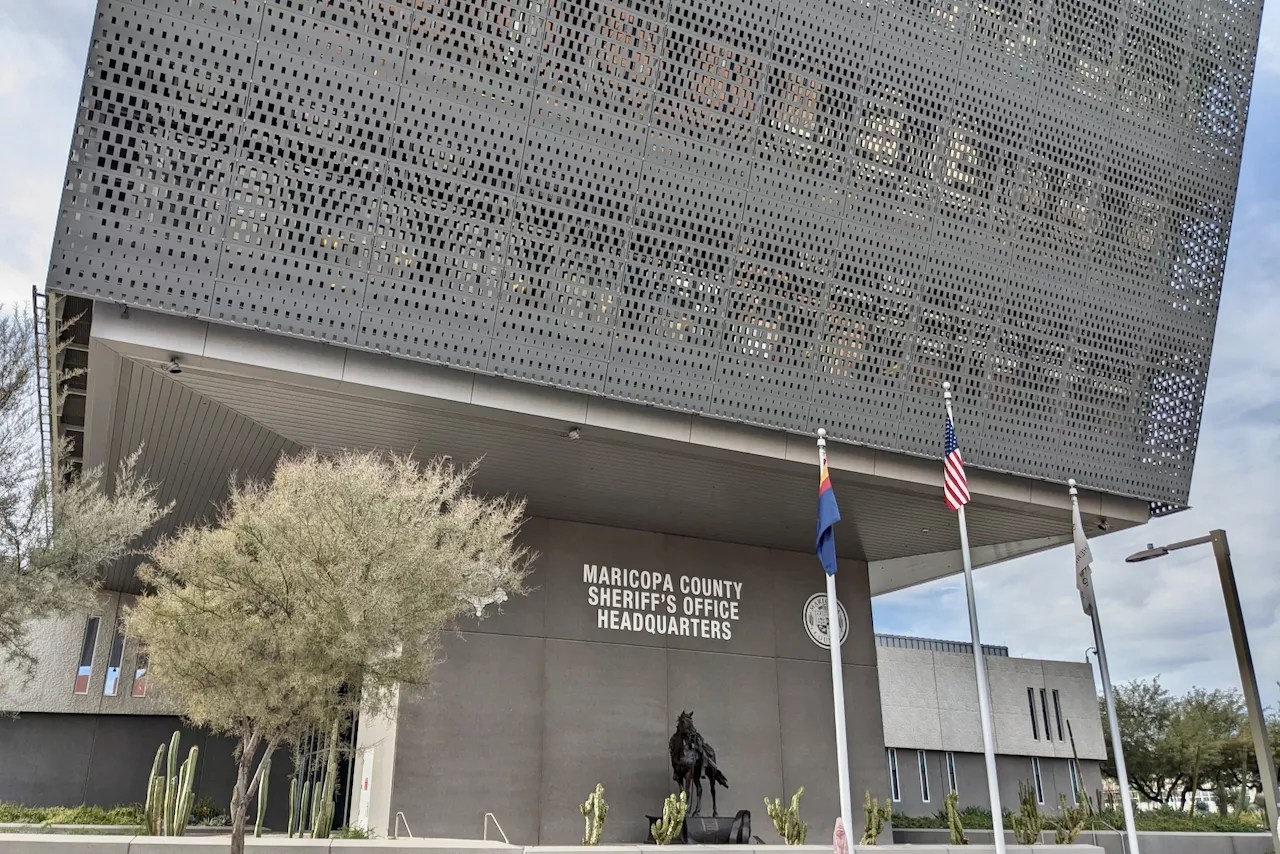
Matt Hennie

Audio By Carbonatix
Since Maricopa County Sheriff Paul Penzone was cited for contempt of court more than two months ago, tensions have been building between the sheriff’s office and a court-ordered board meant to provide public input and oversight.
The conflict came to a head on Friday during a hearing in Melendres v. Penzone, the long-running case responsible for Penzone’s legal troubles. Earlier that day, some members of the Community Advisory Board said they were “outraged” at the agency’s failure to comply with court orders and alleged that the board has been sidelined. The five-member panel was created under Melendres to review policies at the sheriff’s office and ensure dialogue between the sheriff and the public.
The Melendres case was filed in 2007, when former Sheriff Joe Arpaio helmed the agency, to challenge the agency’s racial profiling practices and raids of undocumented immigrants. The lawsuit has now dragged on long enough to make Penzone’s predecessor’s legal problems his own.
In November, U.S. District Judge Murray Snow held Penzone in contempt of court over a massive backlog of misconduct investigations that has worsened during his tenure. Snow ordered that the agency take decisive action to reduce the backlog – and put significant sanctions in place.
Penzone is appealing that order. But for now, the contempt ruling still stands. Though Penzone managed to avoid initial sanctions, he could still face penalties if the backlog is not cleared and the division charged with investigating misconduct – the Professional Standards Bureau – isn’t fully staffed.
“I’m not going to give extensions,” Snow warned the sheriff’s attorneys on Friday. He added that he had waited “long enough.”
The sheriff has said that appealing the court ruling “does not in any way impact the sheriff’s commitment to fully comply with all of the court’s orders.” But the move has frustrated some longtime community advocates, including members of the Community Advisory Board.
Board member Sylvia Herrera joined other critics of Penzone on Friday to call for “complete court oversight” of the sheriff and blasted the agency for sidelining the board. “MCSO has failed to fully engage directly affected community including the Community Advisory Board,” they said, adding that the board was “outraged” at the non-compliance with the order by the sheriff’s office.
Herrera, fellow board member Raul Piña, and members of Somos America and Barrio Defense Committees, two civil rights groups focused on Arizona’s immigrant population, appeared at the hearing on Friday.

A federal judge has ordered a study of how the Maricopa Sheriff’s Department allocates personnel in the short-staffed agency.
Matt Hennie
Sheriff’s Office to Conduct Staffing Study
Much of the hearing was spent debating whether a consultant the sheriff hired to complete a court-ordered study of its staffing is up to the job. Snow ordered the study in November to investigate “the most efficient way for MCSO to allocate its personnel in light of existing authorized staffing levels” and what staffing is required for the sheriff to handle the backlog.
The sheriff’s office wants the Washington, D.C.-based Center for Public Safety Management to undertake the study. But attorneys for the plaintiffs outlined deficiencies they saw with the study’s progress so far, including a lack of community engagement by the consultant. “The staffing study is nearly complete, and they have not spoken to members of the impacted community at all,” said Maureen Johnston, an attorney with the U.S. Department of Justice.
Snow appeared frustrated by the apparent lack of public engagement. The study, he said, “will never have my approval unless the CAB is seriously consulted in a meaningful manner.” The sheriff “may not care,” Snow said – but he did.
Piña, one of the community board members, told Phoenix New Times after the hearing that it was “extremely frustrating to not have that community engagement.” He noted that the case stemmed from the sheriff’s racial profiling practices and that traffic stop reports in recent months have shown that racial disparities have persisted.
It was a “huge win,” Piña added, for Snow to emphasize the importance of the board. But Piña said he’s still concerned about Penzone’s attempts to appeal the contempt ruling and efforts to sideline the oversight board.
The Community Advisory Board consists of two members appointed by the ACLU, two appointed by the sheriff, and one joint appointee. Piña and Herrera are both ACLU appointed. They’ve been joined in recent weeks by new members who filled long-running vacancies: César Chávez, a former Democratic state representative, and human rights attorney Natali Segovia.
On Friday, Snow allowed the consultant to proceed with the staffing study – but gave no promise that he would approve the final product. And whether the judge has any say in the final product depends on whether the contempt order against Penzone is upheld. The sheriff’s appeal of the ruling is now pending with the Ninth U.S. Circuit Court of Appeals.